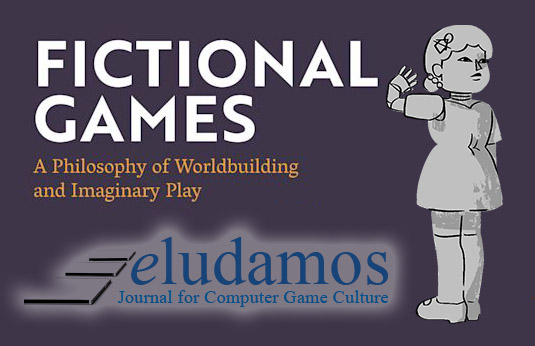
ELUDAMOS call for papers on fictional games


The eminent game studies journal Eludamos issued a call for papers for a special issue titled
"Fictional Games and Fictional Game Studies" (submission deadline 15 October 2024)
The guest-editors for this special issue are none other than our own Prof. Stefano Gualeni and long-time friend and collaborator with the IDG Prof. Riccardo Fassone (the dynamic duo behind the 2022 book Fictional Games, published by Bloomsbury).
Find the call for papers below. Again, the full paper submission deadline is set for October the 15th, 2024 (and the issue publication is set for June 2025).
CALL FOR PAPERS: FICTIONAL GAMES AND FICTIONAL GAME STUDIES
Fictional games are playful activities and ludic artefacts that were specifically created as part of fictional worlds (or that otherwise originated in fiction). As examples, think of the titular Hunger Games, or Holo-chess in the fictional universe of Star Wars.
In their foundational academic work on games that exclusively exist as fictions, Stefano Gualeni and Riccardo Fassone emphasize that the purpose of fictional games is to trigger the imagination of the audience. These ‘games’ cannot actually be played, or - at least - were not originally meant as playable artefacts (Gualeni & Fassone 2022; Gualeni 2021). They are fictional elements whose main goal is aesthetic rather than ludic: their gameplay might aid characterization, add detail to the fictional world of which they are part, play an important part in the narrative, or simply function as comic relief. More simply put, a fictional videogame like Global Thermonuclear War – whose simplified wireframe graphics and ominous apocalyptic undertones are part of the fictional world of the film War Games (Badham 1983) – is the kind of cultural phenomenon we intend to analyze in this special issue, whereas the filmic representation of the actual game of basketball in Spike Lee’s He Got Game (1998) is not.
Concentrating on the uses and the cultural value of fictional games - as well as their relevance to the field of game studies - this special issue thus solicits contributions that are short and focused.
- Short: we expect the submitted texts to not exceed 5000 words in length (not counting the bibliography), and
- Focused: the editors encourage submissions that discuss a single case study of a fictional game (or a few related case studies) that the authors find particularly interesting to analyze and theorize about.
A successful submission leverages conceptual tools from fields such as literary theory, game studies, game design, and the philosophy of fiction, and engages with questions such as: what roles can imaginary games have in storytelling? Why do fiction authors outline rules and behaviors of games that the audience will never actually play? Can we apply tools and methods that are specific to game studies to better understand fictional games? What can fictional games teach us about games and play?
For the complete text of the call for papers, for important dates, and links to the Eludamos academic journal: https://eludamos.org/index.php/eludamos/announcement/view/117

